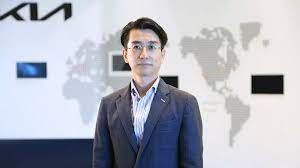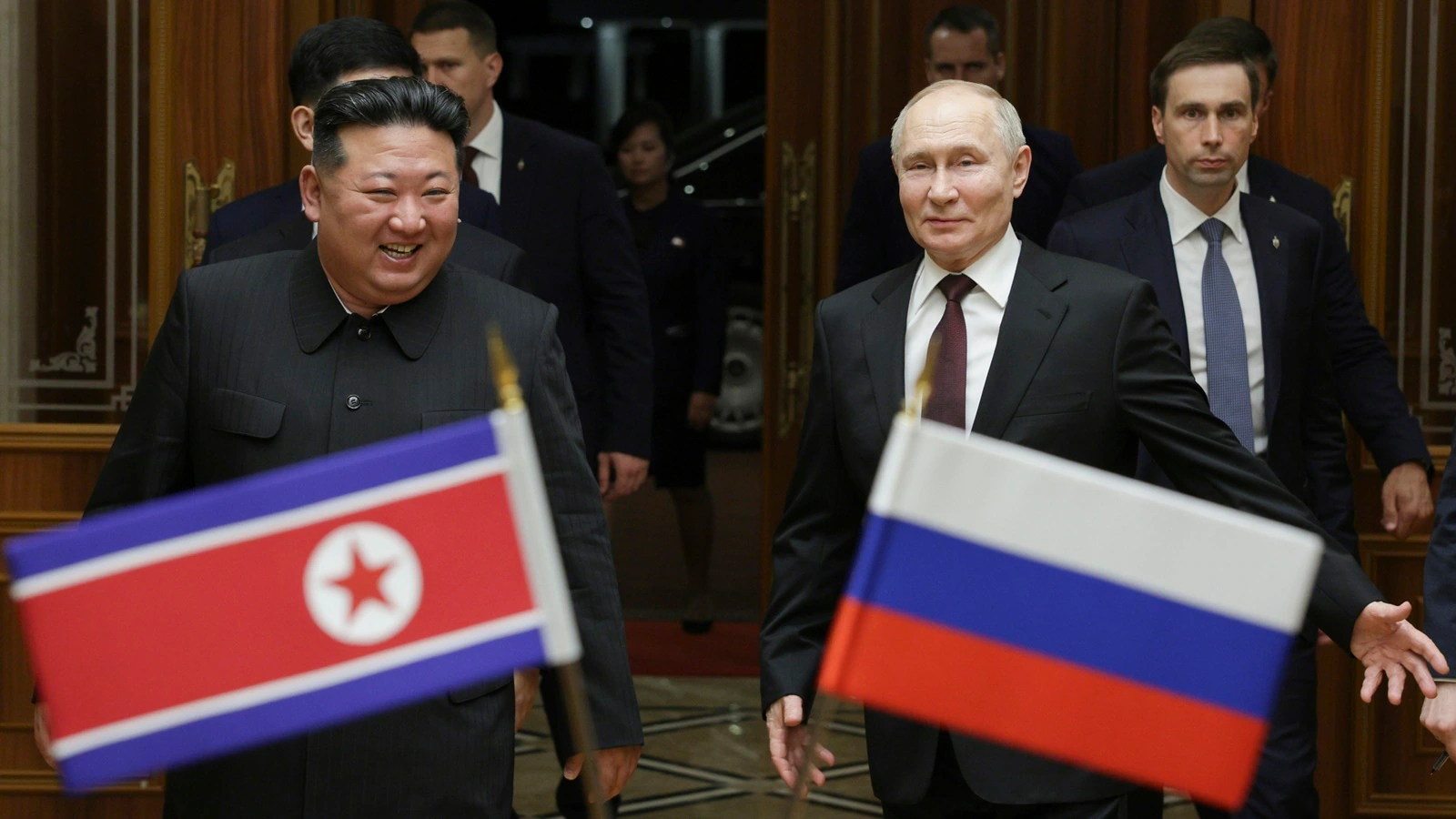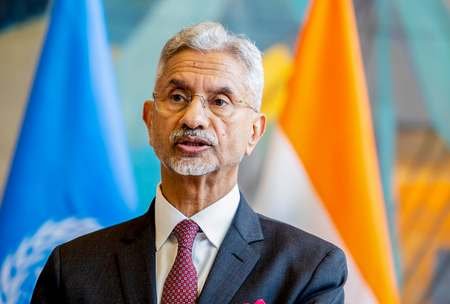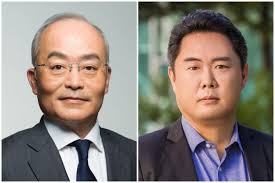China News & Trends


Being from the East gives us a competitive edge: Sano Takeshi
Takeshi Sano was recently in India. Sano took over as CEO of Densu Japan in January of this year and will shortly take on a new role as the network's deputy global COO. In the past 11 months, the ambitious Sano claims to have exchanged business cards with 2,900 people. Sano met more than 100 people at an event for the agency's clients while in India. Quotes from a discussion in which Yuichi Toyoda, global practice president of business transformation, and Harsha Razdan, CEO of Dentsu South Asia, also participated:For our Japanese clients, India is becoming a more significant strategic market. Of course, we care about the markets that matter to our clients. Additionally, a large number of Japanese customers intend to visit India, one of the economies with the quickest rates of economic growth. We hosted an event for our about 100 Japanese clients during my visit to demonstrate to them our combined strength from Dentsu Japan and Dentsu India. We wanted to let them know that we would also find a method to help them from Japan.Additionally, we wanted to inform the clients that Dentsu Japan is a partner for business transformation (BX) and customer experience (CX) in addition to being an advertising agency.In August, we introduced the Dentsu BX in India. We create creative strategies and solutions that tackle the intricate problems that our clients encounter by fusing marketing, technology, and consulting. Next year, we also want to open our R&D lab, Dentsu Labs, in Bengaluru and Mumbai. Since its founding in Japan in 2014, Dentsu Labs has begun to grow internationally, beginning in the EMEA (Europe, the Middle East, and Africa) region this year. It will hasten the development of innovations for society, businesses, and consumers.
Published 17 Dec 2024 08:32 PM


Moves and win roundup: Week of January 2, 2024
The media agency for Publicis Groupe, Starcom, has announced a new win: starting in 2024, Starcom Indonesia will serve as BMW Group's media agency of record, joining Starcom in China and Singapore, which will continue to hold that title in their respective regions. As the media agency of record in these markets, Starcom will oversee strategic planning, media buying, and business transformation for all of BMW Group's most iconic brands, including BMW and Mini, after a regional media assessment by BMW Group.Former chief marketing and customer officer of AXA Hong Kong Andrea Wong has left the company to become senior vice president of group marketing and communications at Shangri-La Group. As stated in a LinkedIn post, Wong will work with new colleagues “to further strengthen the hotel brands, create impactful marketing campaigns and PR efforts, and further build up the Shangri-La Circle propositions to deliver superior customer experience.” She will report to Kuok Hui Kwong, the chairman of the group. Wong joined AXA in 2008 and has worked there for more than 20 years. She was appointed CMO of AXA Hong Kong and Macau. To improve its social media marketing service, Innocean has formed a social marketing organization called Innocean S, which is scheduled to open for operation in January 2024. Span Wealth is the newest client of Human, an integrated agency based in Mumbai that was created by Imran Khan and Chirag Raheja. The agency's brief calls for giving the brand a fresh look, incorporating classic elegance, and developing an influential, forward-thinking online presence. With more than 500 crores of assets under management, Span Wealth is a wealth management firm situated in Mumbai. Dorothy Peng announced on LinkedIn that she has become a partner at Deloitte Consulting in Singapore. Peng will be focusing on design and customer strategy in Southeast Asia. She spent more than eight years as an employee of RGA before joining Deloitte. In 2015, she started working for the agency as a group account director. In 2022, she received a promotion to SVP managing director Asia.
Published 24 Jan 2024 12:50 PM
No News Founds!


Today's stock market: Asian stocks are divided as Wall Street emerges from its holiday-season slump
HONG KONG (AP) — Following Wall Street's recovery from the holiday season blues, Asian stocks are uneven, with markets in China and Tokyo seeing declines.As Tokyo's market reopened following the lengthy customary holiday, the finance minister of Japan rang in the New Year, and employees wearing suits and kimonos applauded for good fortune in 2025.Katsunobu Kato, the finance minister, declared that the Japanese government would take action to assure economic growth driven by investment and salary rises. He also promised to "grasp signs of recovery" and make sure that "every single citizen can feel the improvement in their salaries."Much of Asia has been wary of possible changes under President-elect Donald Trump, who has pledged to drastically increase tariffs on imports from China and other nations, which might impede growth for a region that depends significantly on trade. After U.S. President Joe Biden turned down Nippon Steel's roughly $15 billion offer to buy Pittsburgh-based U.S. Steel Corp., the company was predicted to file a lawsuit. On Monday, Nippon Steel's stock dropped 0.7% in Tokyo. On Friday, U.S. Steel's stock fell 6.5%. Hong Kong's Hang Seng fell 0.5% to 19,654.82, while Tokyo's benchmark Nikkei 225 index fell 1.6% to 39,258.25. At 3,194.20, the Shanghai Composite index fell 0.5%.
Published 06 Jan 2025 10:33 PM


A significant change in China's monetary policy sparked a stock market boom. Yet 'a lot of instability' remains a threat.
Monday saw a surge in Chinese stocks following the nation's indication of a more aggressive stimulus plan for the upcoming year. According to China state media Xinhua News Agency, Beijing's senior leaders announced they will adopt a "more proactive" fiscal policy and a "moderately loose" monetary policy.Hui Shan, the chief China economist at Goldman Sachs, wrote in a note to clients on Monday, "We view the outcome as an upside surprise due to stronger easing rhetoric, relative to the low market expectations prior to the meeting." The team also anticipates the announcement of "more concrete demand-side stimulus measures" early next year. Interestingly, the economist notes that China last referred to its monetary policy stance as "moderately loose" in 2009–2010.Following the remarks, Hong Kong's benchmark Hang Seng Index (^HSI), which is dominated by huge Chinese stocks, increased by almost 3% on Monday. The upward movements were echoed by other Chinese-listed corporations and exchanges. On Monday, China's benchmark CSI 300 (000300.SS) increased by more than 1%. Chinese e-commerce behemoths Alibaba (BABA), PDD Holdings (PDD), and JD.com (JD) also saw at least 9% increases in their stock prices. XPeng (XPEV, 9868.HK), a Chinese manufacturer of electric vehicles, too had double-digit growth, increasing by about 14%.
Published 10 Dec 2024 11:07 PM


Twenty-seven Maoists in Sukma, Chhattisgarh, surrender
According to the police, up to 27 active Maoists with a combined reward of ₹50 lakh turned themselves in to the Sukma district on Wednesday, October 15, 2025.This comes a day after 60 other cadres and senior Naxalite Mallojula Venugopal Rao, also known as Bhupathi, surrendered in the Gadchiroli district of Maharashtra. The government's determination to abolish Naxalism, which is mostly centered in the Bastar area of Chhattisgarh, by March 31, 2026, has been emphasized by Union Home Minister Amit Shah.Ten women were among the 27 Naxalites who gave up in Chhattisgarh on Wednesday. They surrendered in front of Central Reserve Police Force officials and top police officers. According to Sukma Superintendent of Police Kiran Chavan, they expressed dissatisfaction with the "hollow" Maoist doctrine, crimes carried out by Naxalites on defenseless tribal people, and the increasing power of security forces. The Chhattisgarh government's 'Niyad Nellanar' initiative, which aims to facilitate development projects in rural communities, and the state's new surrender and rehabilitation policy also impressed the cadres, he said.According to the official, Oyam Lakhmu, a member of battalion no. 1 of the Peoples' Liberation Guerrilla Army, which was regarded as the most formidable Maoist military unit, was carrying a bounty of ₹10 lakh on his head. Three more According to him, Madvi Bhima, a party member in PLGA battalion no. 1's military platoon unit, Sunita, also known as Kawasi Somdi, and Sodi Mase, who were both members of regional military company no. 2, each held a ₹8 lakh reward. Additionally, he stated that a cadre held a prize of ₹3 lakh, two cadres held a bounty of ₹2 lakh each, and nine cadres held a reward of ₹1 lakh apiece.He stated that all of the Naxalites who turned themselves in received ₹50,000 in aid apiece and would receive additional rehabilitation in accordance with government policy.
Published 15 Oct 2025 05:10 PM


To stop diversion to China, the US tightens regulations on cutting-edge computer processors.
Reuters, Washington, January 15 In an effort to stop high-end chips from being diverted to China, the US tightened regulations on advanced computer semiconductors on Wednesday, according to the Commerce Department.According to the report, the new regulations place more stringent licensing requirements on chip manufacturers and packaging firms looking to export specific cutting-edge semiconductors. According to Commerce, they expand on previous actions meant to prevent China from obtaining specific semiconductors that are essential for military advantage.In an effort to slow down China's technological achievements, the US has tightened regulations for firms like Nvidia and imposed broad new laws restricting the sale of artificial intelligence (AI) processors. The worldwide AI chip market, particularly the Indian market, may be significantly impacted by these new regulations. The new regulations, which are expected to go into force in a year, place stringent restrictions on the processing capacity of AI chips that are marketed in the majority of nations. There are exceptions for allies who follow the security and human rights guidelines that the US has established. The intent of these new regulations is to stop enemies, especially China and Russia, from using cutting-edge AI technology for surveillance or military objectives."Trade-offs are necessary for managing national security threats. In a White House blog post, US Commerce Secretary Gina Raimondo stated, "This rule guarantees our allies can access advanced technology while protecting our interests." In order to guarantee that AI development complies with US requirements, the laws expand upon earlier chip export controls. “This rule ensures that the infrastructure for frontier AI systems remains in America or allied jurisdictions, preventing offshoring similar to what occurred with chips and batteries,” said National Security Advisor Jake Sullivan in a formal statement.
Published 15 Jan 2025 08:48 PM


China is constructing the biggest artificial island airport in the world.
The largest airport in the world on an artificial island is another impressive addition to China's aviation portfolio.According to an airport statement, the Dalian Jinzhou Bay International Airport, which is currently being built off the northeast coast of the country, will eventually span a 20-square-kilometer (7.7-square-mile) island with four runways and a passenger terminal that is 900,000 square meters (969,000 square feet).With the first phase scheduled to open in 2035, its operators hope to handle 80 million people annually across 540,000 flights.According to a tweet made by Dalian Jinzhou Bay International on the Chinese social networking site WeChat, "The nation's largest offshore airport is slowly rising from the sea level like the sunrise in the east."When finished, it will surpass Japan's Kansai Airport (KIX) and Hong Kong International Airport (HKG) as the largest airport on an artificial island in the world. Li Xiang, chief engineer of Dalian Airport Construction and Development Co., Ltd., told state-run local media in October that the project had experienced significant difficulties due to its complex geological conditions, high drilling difficulty, high quality demand, and tight construction schedule. The 7.5 million-person metropolis of Dalian has traditionally served as a transportation hub because of its close proximity to South Korea and Japan. According to Yicai, a state-affiliated daily, Dalian Zhoushuizi Airport, the city's international airport that has been in operation for almost a century, has already reached its maximum capacity and has undergone multiple expansions in recent years. According to state-run local media, the city began site selection and demonstration work on the new airport in 2003, but building only really got underway a few years ago. The expansion of China's aviation industry is mostly due to new airports. The nation is poised to overtake the US as the largest air travel market globally. Daxing (PKX), Beijing's second airport, opened with much fanfare on October 1, 2019, the 70th anniversary of the People's Republic of China's founding. Chinese officials at the time stated the
Published 19 Dec 2024 11:08 PM


"LAC Situation Stable But Sensitive, No Friction In A Year" : the Army Chief of Staff
There haven't been any more areas of friction between China and India in the past year, Chief of Army Staff General Manoj Pande stated on Monday, despite maintaining that the situation along the Line of Actual Control (LAC) is stable "but sensitive." The Chief of Army Staff stated in an interview with ANI that since April 2020, there have been 20 meetings of senior higher military commanders and 14 meetings of the Working Mechanism for Consultation and Coordination on China-India Border Affairs.The Line of Actual Control (LAC) situation is sensitive but stable. We haven't had any more conflict areas in this over the past year or so. Regarding our efforts to find a solution, we are still in communication and dialogue with the enemy on a military and diplomatic level, General Pande stated."Since April 2020, we have held 14 WMCC meetings and 20 senior higher military commander level meetings," he stated. We therefore hope that through these discussions, a solution can be reached." The 3,488 km border between India and China passes through Arunachal Pradesh, Himachal Pradesh, Uttarakhand, Sikkim, and Jammu and Kashmir. Since May 2020, when the Chinese troops tried to aggressively change the status quo on LAC in eastern Ladakh, both sides have been deployed in forward positions near Patrolling Point 15, which emerged as a friction point in the wake of the Galwan clash.General Pande gave a briefing on the Army's readiness levels along the northern border, stating, "We are maintaining adequate reserves to be able to deal with any contingencies and our deployment remains robust as well as balanced." "As all of this is going on, we are also concentrating on strengthening our capacity in these domains by introducing better systems, modernizing our fleet, and introducing safer vehicles, drones for surveillance, improved radio sets for communication, etc. We are concentrating on and exerting effort on infrastructure development at the same time. Be it the habitat, forward connectivities to the LAC, or strategic road connectivity...it also includes extending power supply to our forward troops, improving communication in terms of 5G communication to our troops deployed in forward areas," the Army chief said. "We are also working alongside other government agencies, local administration and the local population to make sure that our preparedness levels along the LAC always remain high," he stated.
Published 29 Jan 2024 05:14 PM
No News Founds!
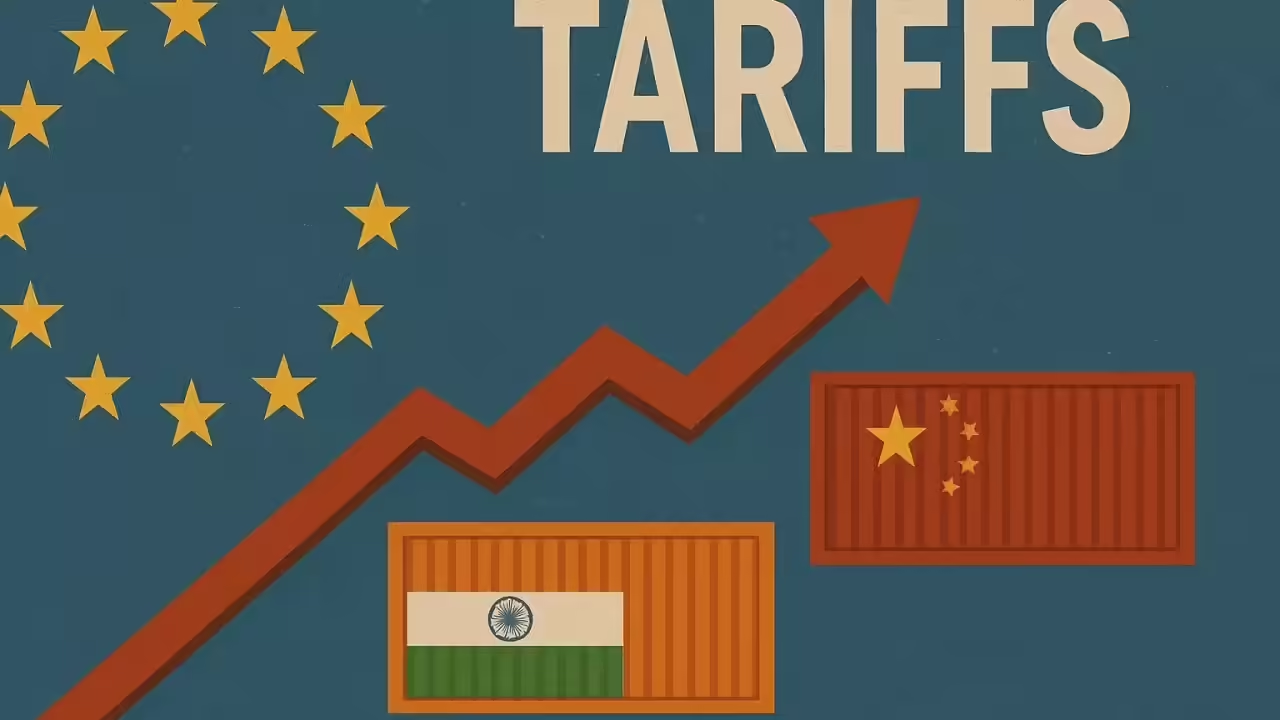

Is it possible for the EU and NATO to impose tariffs on China and India as Trump desires?
In an effort to pressure Russian President Vladimir Putin to halt the war in Ukraine, US President Donald Trump has urged NATO and EU members to impose tariffs of up to 100% on China and India.Trump, who previously pledged to end the conflict on “day one” of becoming president, made his demand during a meeting between United States and European Union officials last Tuesday. The move is seen as a way to try to expedite a peace deal between Moscow and Kyiv.In a letter posted on his Truth Social account on September 13, Trump said he was “ready to do major sanctions on Russia” once NATO had “agreed … to do the same thing”. He also claimed that elevated tariffs on China would weaken Beijing’s “control” over Russia.China and India buy Russia’s oil, which is helping to keep the Russian economy afloat. As the largest buyer of Russian energy, China imported 109 million tonnes of crude oil last year, representing roughly 20 percent of its total energy imports, according to Chinese customs data. India, by contrast, imported 88 million tonnes of Russian oil in 2024, or about 35 percent of its imports.To sidestep the issue, Trump on Saturday asked NATO to impose 50-100 percent tariffs on China to weaken Beijing’s economic grip over Russia. In the letter Trump posted on Saturday, he claimed the halt on Russian energy purchases, combined with heavy tariffs on China, would be of “great help” in ending the conflict.Europe’s reliance on Russian energy has fallen since the start of Moscow’s full-scale invasion of Ukraine in February 2022. At the time, the EU imported 45 percent of its natural gas from Russia. That is expected to fall to just 13 percent this year. But Trump wants Europe to do more.
Published 16 Sep 2025 02:06 PM
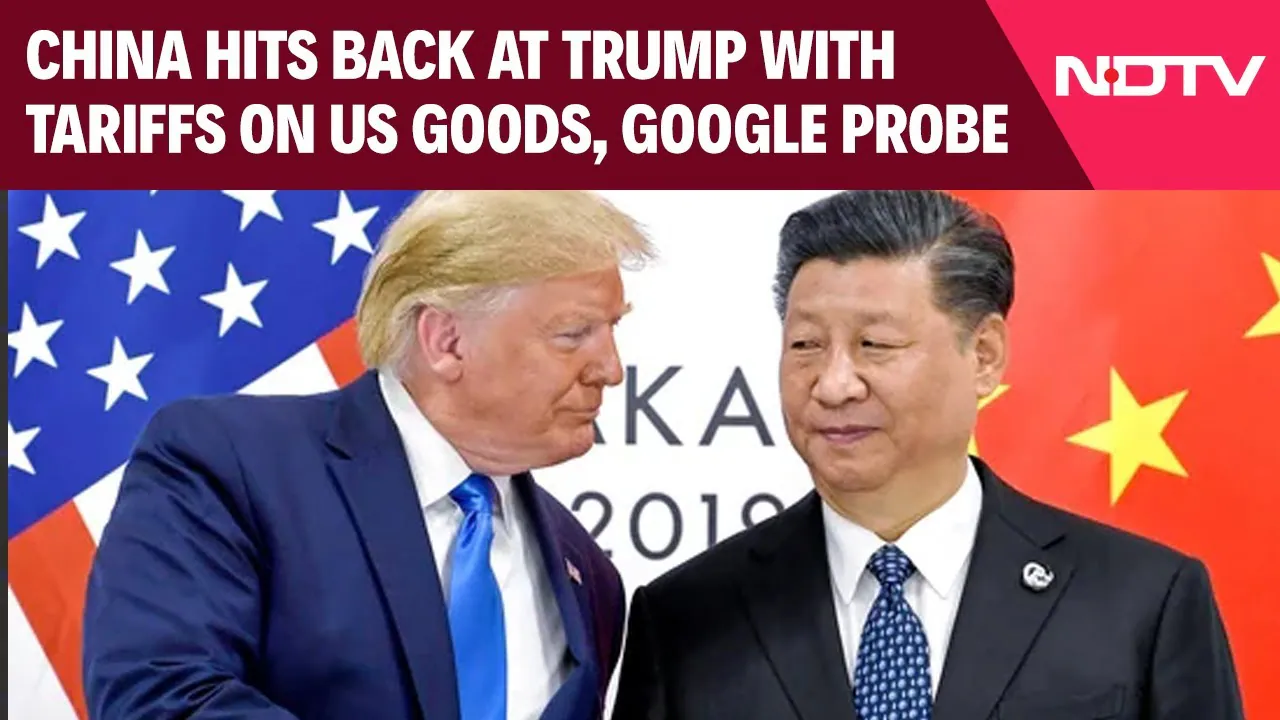

We Don't Take Part In Wars : China Responds to Trump's Threat of 100% Tariffs
The comments were made soon after US President Donald Trump suggested on Saturday that NATO apply 50–100% tariffs on China.In response to President Donald Trump's suggestion that NATO put 50–100% tariffs on Beijing for its purchases of Russian energy, China has retaliated. Chinese Foreign Minister Wang Yi has emphasized that sanctions would only make matters worse and reiterated Beijing's commitment to advancing peace negotiations to address hot-spot concerns.According to China Daily, he made the comments at a press conference in Ljubljana on Saturday following a meeting with Tanja Fajon, Slovenia's Deputy Prime Minister and Minister of Foreign and European Affairs."China does not participate in or plan wars, and what China does is to encourage peace talks and promote political settlement of hotspot issues through dialogue," Wang Yi stated.Additionally, he called for the strengthening of multilateral structures, the promotion of multilateralism, and the cooperative defense of the UN Charter's goals and tenets. He emphasized that the current state of international affairs is marked by ongoing wars and entangled disarray."China and Europe ought to work together rather than against one another, and they ought to be allies rather than adversaries. According to Global Times, Wang Yi stated, "Making the correct decisions in the midst of the biggest changes in a century demonstrates the responsibilities that both sides should fulfill towards history and the people."His subliminal allusion follows US President Donald Trump's suggestion on Saturday that NATO apply tariffs on China ranging from 50% to 100%.
Published 15 Sep 2025 09:13 PM
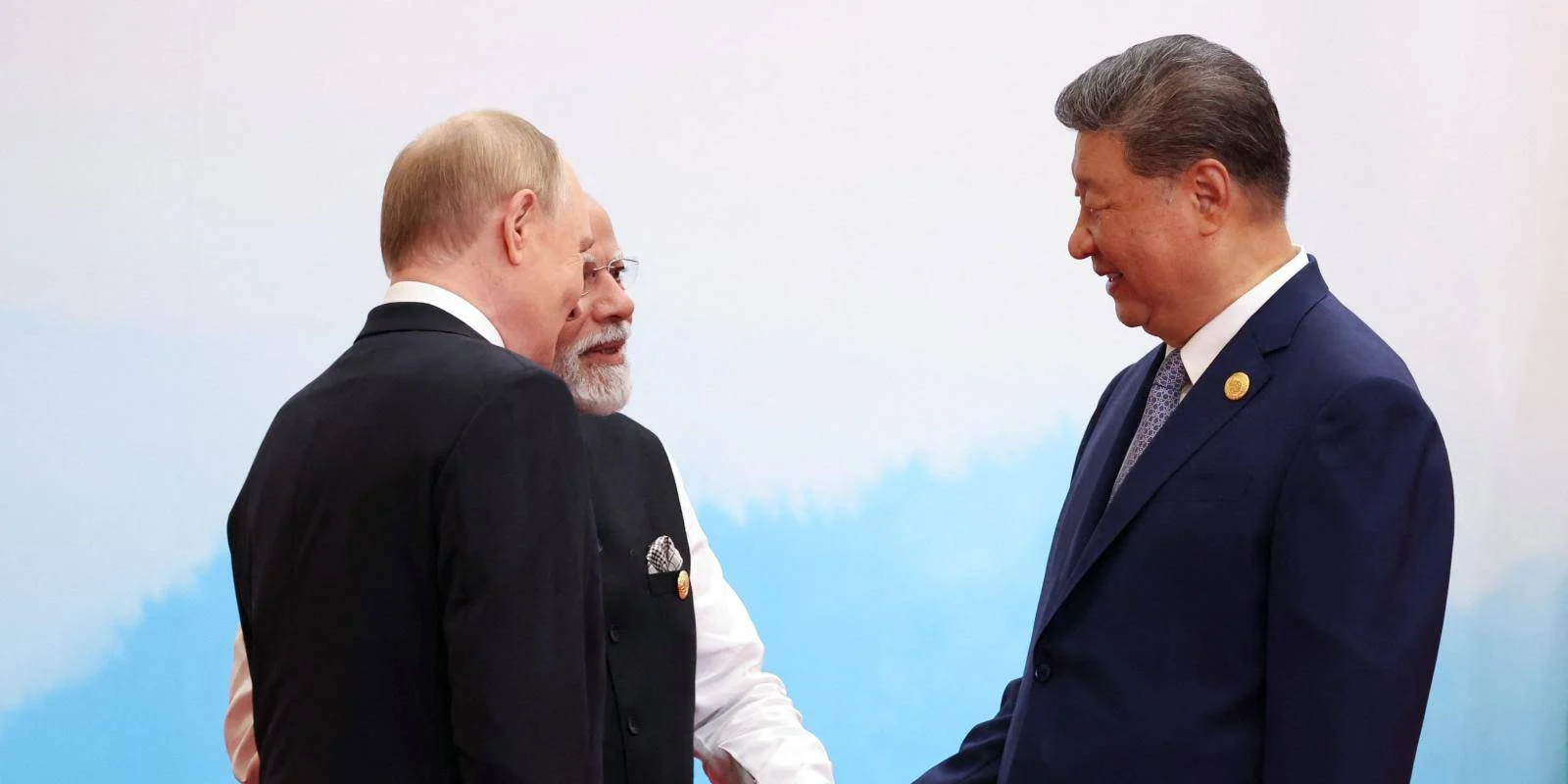

An Overview of the UPSC Issue | SCO Summit 2025 and India: Four Crucial Questions for Prelims and Mains
By scheduling two significant events in one week—the Shanghai Cooperation Organization (SCO) Summit in the northeastern city of Tianjin and a Victory Day parade in Beijing's Tiananmen Square commemorating the 80th anniversary of the end of World War II—Beijing has entered diplomatic high season as summer draws to a close. It's difficult to overlook the symbolism. The events convey a clear message: in contrast to the Western narrative of a free international order led by the United States, China is positioning itself as the standard-bearer of a multipolar world dominated by the Global South.Both occasions are expertly produced political plays that combine military prowess, diplomatic posture, and historical narrative. Additionally, China has two audiences in mind: it wants to project power and influence in its neighborhood and beyond while simultaneously boosting domestic public morale. For a long time, Chinese strategists have emphasized that the goal of foreign policy is to establish an external environment that supports economic growth at home. Originating with previous Chinese leader Deng Xiaoping, this core idea has evolved into the current leadership's catchphrase for negotiating a turbulent global landscape.The two events' participating nations attest to China's continued strategic emphasis on Asia. The majority of major Asian nations are represented among the more than 30 heads of state and international organizations taking part, with the notable exception of Japan, South Korea, Singapore, and the Philippines—all of whom are strong security partners of the United States.
Published 05 Sep 2025 08:48 PM
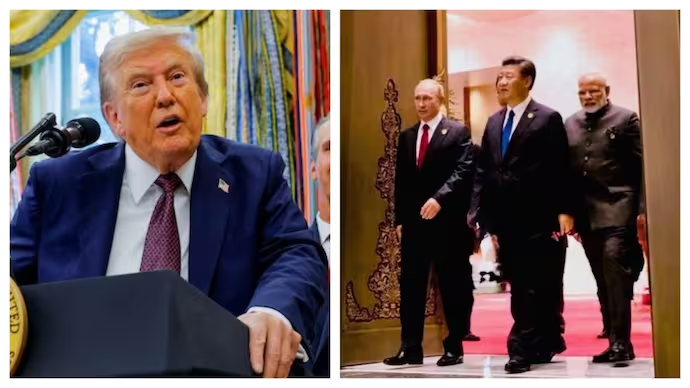

Trump posts a photo of Xi, Putin, and the PM together: China has taken Russia and India away from us.
Days after the leaders of the three nations were spotted together at the Shangai Cooperation Organization (SCO) Summit in Tianjin, Donald Trump gave a strong indication on Friday that Washington-New Delhi relations had reached a low point when he claimed that the US had "lost" India and Russia to the "darkest" China.Donald Trump's statement that the US has "lost" India and Russia to the "darkest" China on Friday, just days after the leaders of the three nations were spotted together at the Shangai Cooperation Organization (SCO) Summit in Tianjin, was a clear indication that relations between Washington and New Delhi had reached a low point.India and Russia appear to have been lost to the darkest, most sinister China. I hope their future together is filled with success and longevity! "President Donald J. Trump," Trump wrote as the description for his Truth Social post, which included a photo of PM Modi at the Tianjin meeting with Putin and Jinping. During a press briefing on Friday, the Ministry of External Affairs declined to comment on Trump's post. "We don't have anything to comment on Trump's post as of now" ."Trump and Modi had a great personal relationship. In an interview with the British broadcaster LBC, Bolton stated, "I think that's gone now, and it's a lesson to everybody." "For example, (UK Prime Minister) Keir Starmer -- a good personal relationship may help at times, but it won’t protect you from the worst" . Bolton's warning implied that Modi's much-discussed "bromance" with Trump, which previously made headlines for everything from state visits to Houston's "Howdy Modi" rally, might have come to a standstill.
Published 05 Sep 2025 08:40 PM
Entertainment
No News Founds!
Sports Trend


AI will be used by the Japan Sports Agency to help athletes
Published 06 Jan 2025 09:18 PM


China is on the verge of a shocking Asian Cup exit, while Tajikistan is making history
Published 24 Jan 2024 05:11 PM


Chinese chess champion allegedly used anal beads and was banned for a year after pissing in the bathtub" After defecating in a bathtub and being accused of cheating, 48-year-old Yan Chenglong, the rec
Published 16 Jan 2024 01:48 AM
Political Trends
- We Don't Take Part In Wars : China Responds to Trump's Threat of 100% Tariffs
- An Overview of the UPSC Issue | SCO Summit 2025 and India: Four Crucial Questions for Prelims and Mains
- Trump posts a photo of Xi, Putin, and the PM together: China has taken Russia and India away from us.
- Chinese Envoy: U.S. Tariffs Threaten Stability, Demand Response
- BRICS Summit, 2024, at night After six years, Narendra Modi and Chinese President Xi Jinping will have formal meetings.
Finance & Stock Market Trend
All Trending News in China


Today's stock market: Asian stocks are divided as Wall Street emerges from its holiday-season slump
HONG KONG (AP) — Following Wall Street's recovery from the holiday season blues, Asian stocks are uneven, with markets in China and Tokyo seeing declines.As Tokyo's market reopened following the lengthy customary holiday, the finance minister of Japan rang in the New Year, and employees wearing suits and kimonos applauded for good fortune in 2025.Katsunobu Kato, the finance minister, declared that the Japanese government would take action to assure economic growth driven by investment and salary rises. He also promised to "grasp signs of recovery" and make sure that "every single citizen can feel the improvement in their salaries."Much of Asia has been wary of possible changes under President-elect Donald Trump, who has pledged to drastically increase tariffs on imports from China and other nations, which might impede growth for a region that depends significantly on trade. After U.S. President Joe Biden turned down Nippon Steel's roughly $15 billion offer to buy Pittsburgh-based U.S. Steel Corp., the company was predicted to file a lawsuit. On Monday, Nippon Steel's stock dropped 0.7% in Tokyo. On Friday, U.S. Steel's stock fell 6.5%. Hong Kong's Hang Seng fell 0.5% to 19,654.82, while Tokyo's benchmark Nikkei 225 index fell 1.6% to 39,258.25. At 3,194.20, the Shanghai Composite index fell 0.5%.
Published 06 Jan 2025 10:33 PM


When it comes to humanoid robots, China leads the way.
China is quietly changing the game by not only integrating robots into everyday life but also advancing their industrial uses by lowering costs and pushing boundaries. US star Kim Kardashian may have drawn attention by bringing humanoid robots shopping.With products like Xiaomi's futuristic CyberOne and UBTech's nimble Walker X, domestic innovations are transforming sci-fi fantasies into "tangible tech" and making a big impact on the market.The AI Plus plan, which aims to develop future industries, including humanoid robots, while bolstering the country's scientific and technological edge, was also prominently featured at the historic Central Economic Work Conference in December.Humanoid robots are predicted to become yet another "disruptive product" following computers, smartphones, and new energy vehicles, according to Xu Xiaolan, a former vice-minister of industry and information technology and member of the Standing Committee of the Chinese People's Political Consultative Conference National Committee."Currently in China, new technologies, products and formats represented by humanoid robots and general artificial intelligence are thriving and becoming the pinnacle of global technological innovation, a new track for future industries and a new engine of economic growth," she stated. China's fast expanding humanoid robot market is expected to generate $2.9 billion in sales revenue in 2024 and soar to around $46.31 billion by 2031, at a startling compound annual growth rate of 48.6 percent, according to market consultancy Coherent Market Insights. According to Jiao Jichao, vice-president and executive dean of the research department of UBTech Robotics, "If we compare the humanoid robotics industry to a marathon, China and Western countries are all within the first 1,000 meters of the starting line." The first humanoid robot in China to perform full-process handling duties at an automobile production was Walker S, created by the Chinese artificial intelligence and humanoid robotics company UBTech. Additionally, the business struck a collaboration deal with Beijing Embodied and Audi FAW.
Published 06 Jan 2025 10:30 PM


AI will be used by the Japan Sports Agency to help athletes
Tokyo It has been learned that the Japan Sports Agency intends to update their athlete-strengthening strategy in March, reformulating their policies to specifically include the use of AI in the training of elite athletes for the first time, with an eye toward the 2032 Brisbane Games as well as the Olympic and Paralympic Games. In order to help Japanese athletes better their performances and win more medals, the organization plans to use AI to handle massive volumes of data.The approach will, however, also serve as a warning about the dangers that athletes may encounter from an excessive reliance on AI, such as the loss of their ability to make decisions and feel emotions related to the activity and injuries from excessively strenuous practice. The strategy is the highest standard for actions to help athletes who want to compete in the Olympics and Paralympics. Projects by the Japan Sports Agency and the Japan High Performance Sport Center (HPSC), a bolstering base for elite athletes in Tokyo's Kita Ward, and assistance programs for other sports groups will all demonstrate it. AI is utilized to establish sports strategy, manage athletes' conditions, and enhance their form. In the realm of gymnastics, artificial intelligence (AI) systems have been used to assist judges at world championships by analyzing and scoring filmed performances after being provided information about gymnastics skills.Universities and commercial businesses in Japan are creating artificial intelligence (AI) systems to assist with curling shot selection and assess athletes' positions in trampolining. However, these systems are inaccurate since there is a shortage of data, such as game film, that can be used to train AI. AI-savvy human resources are also lacking in many sports organizations. Sources claim that the agency would incorporate AI-related products into the plan it is creating to improve elite athletes' performances, since Japan is lagging behind the US, Europe, and Australia in this area. It is anticipated that the updated approach will contain measures like providing sports organizations with successful AI use cases and improving AI accuracy by collaborating with researchers to gather larger amounts ofAccording to the revised plan, the agency is anticipated to begin using AI in a number of sports in earnest starting in fiscal 2026 and to expand its network of researchers focused on HPSC. "Using AI is essential to compete with the world," a connected individual stated. However, AI is merely a tool to increase productivity; humans still need to make ultimate judgments. The allure of sports will be gone if athletes allow AI to control their play.
Published 06 Jan 2025 09:18 PM


Putin directs Russia's leading bank and government to work with China on AI.
Vladimir Putin promised to "ensure further co-operation with the People's Republic of China in technological research and development in the field of artificial intelligence" to the government and Sberbank, which is leading Russia's AI initiatives. According to the UK-based Tortoise Media's Global AI Index, Russia is now ranked 31st out of 83 countries in terms of AI deployment, innovation, and investment. This places it far behind China, the United States, and other BRICS nations like Brazil and India.The Russian government and Sberbank, the nation's largest bank, have been instructed by President Vladimir Putin to expand their artificial intelligence collaboration with China. Three weeks after Putin declared that Russia would collaborate with BRICS partners and other nations to create artificial intelligence, his directives were posted on the Kremlin's website on Wednesday. To "ensure further co-operation with the People's Republic of China in technological research and development in the field of artificial intelligence," he advised the government and Sberbank, which is leading Russia's AI efforts.The world's leading manufacturers of microchips have stopped exporting to Russia as a result of Western sanctions meant to limit Moscow's access to the technologies it needs to continue its war against Ukraine, significantly limiting its aspirations in the field of artificial intelligence. In 2023, German Gref, the CEO of Sberbank, admitted that the most difficult hardware for Russia to replace was graphics processing units (GPUs), which are the microchips that support AI development.
Published 03 Jan 2025 09:10 PM


Geely Auto of China aims to sell 2.71 million cars by 2025.
Reuters, Beijing, January 2 In an online conference call on Thursday, Gan Jiaoyue, the CEO of China's Geely Auto (0175.HK), revealed that the company has set an annual sales target of 2.71 million vehicles in 2025. According to An Conghui, CEO of Zeekr, Geely's electric vehicle brand, the company hopes to sell 320,000 vehicles this year. Use the Reuters Auto File newsletter to be informed on the most recent developments, trends, and innovations influencing the global automobile industry. Register here.
Published 02 Jan 2025 10:21 PM


China: To increase tourism, 10-day visa-free transit stays
China extends its visa-free travel policy. There is now a 10-day visa-free stay for visitors from 54 nations. This includes 60 ports and 24 provinces. Residents of Shenzhen are eligible to apply for Hong Kong multiple-entry visas. Additionally, China relaxes visa requirements for 38 other countries. The goal of these adjustments is to boost travel following COVID-19.China has announced a major expansion of its visa-free transit policy in an effort to increase tourism. According to recent developments, qualifying travelers will be able to increase their permitted stay from 72 to 144 hours to 240 hours, or 10 days, under the most recent transit program.Travelers from 54 nations, including the US, UK, Canada, Brazil, and Russia, can now pass through China without a visa on their way to a third country under the updated policy. As long as participants remain inside specified areas, the program is offered at 60 ports spread over 24 provinces. For instance, visitors to Shanghai are allowed to explore the Jiangsu and Zhejiang provinces as well as the larger Shanghai area. Tibet still needs extra licenses for international tourists, nevertheless. This change in policy is in line with China's larger plan to increase foreign travel after reopening its border in 2023 after three years of stringent COVID-19 controls. China has seen a sharp rise in foreign visitor visits, according to recent data. Over half of the 8.2 million foreign visitors recorded in the third quarter of 2024—a 48.8% year-over-year increase—were made possible by the visa-free transit program, which saw a 78.6% gain in its own right.According to reports, residents of Shenzhen can now apply for multiple-entry visas to Hong Kong as of December 1. This removes previous restrictions that permitted only one weekly excursion. The updated rule restores a system that was initially implemented in 2009 and permitted an unlimited number of visits. According to accounts, the restrictions were brought about by protests against parallel trading, in which mainland consumers purchased goods in Hong Kong with the intention of reselling them for a profit. Restoring the policy is expected to increase travel and commerce between Shenzhen and Hong Kong, according to officials.Despite the fact that its visa-free policies have led to an increase in foreign arrivals, China remains selective in its broader exemptions. Citizens of 38 countries, including France, Malaysia, New Zealand, Japan, and Switzerland, are exempt from the visa requirement for a maximum of 30 days. It's interesting to note that the US is not on this list, even though American visa application requirements have been simplified since 2023. China is improving the traveler experience in other ways besides modifying visas. Simplifying travel processes, improving infrastructure, and resolving problems faced by foreign visitors are all part of the country's efforts to become a more accessible and appealing travel destination for individuals from all over the world.
Published 19 Dec 2024 11:13 PM


China is constructing the biggest artificial island airport in the world.
The largest airport in the world on an artificial island is another impressive addition to China's aviation portfolio.According to an airport statement, the Dalian Jinzhou Bay International Airport, which is currently being built off the northeast coast of the country, will eventually span a 20-square-kilometer (7.7-square-mile) island with four runways and a passenger terminal that is 900,000 square meters (969,000 square feet).With the first phase scheduled to open in 2035, its operators hope to handle 80 million people annually across 540,000 flights.According to a tweet made by Dalian Jinzhou Bay International on the Chinese social networking site WeChat, "The nation's largest offshore airport is slowly rising from the sea level like the sunrise in the east."When finished, it will surpass Japan's Kansai Airport (KIX) and Hong Kong International Airport (HKG) as the largest airport on an artificial island in the world. Li Xiang, chief engineer of Dalian Airport Construction and Development Co., Ltd., told state-run local media in October that the project had experienced significant difficulties due to its complex geological conditions, high drilling difficulty, high quality demand, and tight construction schedule. The 7.5 million-person metropolis of Dalian has traditionally served as a transportation hub because of its close proximity to South Korea and Japan. According to Yicai, a state-affiliated daily, Dalian Zhoushuizi Airport, the city's international airport that has been in operation for almost a century, has already reached its maximum capacity and has undergone multiple expansions in recent years. According to state-run local media, the city began site selection and demonstration work on the new airport in 2003, but building only really got underway a few years ago. The expansion of China's aviation industry is mostly due to new airports. The nation is poised to overtake the US as the largest air travel market globally. Daxing (PKX), Beijing's second airport, opened with much fanfare on October 1, 2019, the 70th anniversary of the People's Republic of China's founding. Chinese officials at the time stated the
Published 19 Dec 2024 11:08 PM


Being from the East gives us a competitive edge: Sano Takeshi
Takeshi Sano was recently in India. Sano took over as CEO of Densu Japan in January of this year and will shortly take on a new role as the network's deputy global COO. In the past 11 months, the ambitious Sano claims to have exchanged business cards with 2,900 people. Sano met more than 100 people at an event for the agency's clients while in India. Quotes from a discussion in which Yuichi Toyoda, global practice president of business transformation, and Harsha Razdan, CEO of Dentsu South Asia, also participated:For our Japanese clients, India is becoming a more significant strategic market. Of course, we care about the markets that matter to our clients. Additionally, a large number of Japanese customers intend to visit India, one of the economies with the quickest rates of economic growth. We hosted an event for our about 100 Japanese clients during my visit to demonstrate to them our combined strength from Dentsu Japan and Dentsu India. We wanted to let them know that we would also find a method to help them from Japan.Additionally, we wanted to inform the clients that Dentsu Japan is a partner for business transformation (BX) and customer experience (CX) in addition to being an advertising agency.In August, we introduced the Dentsu BX in India. We create creative strategies and solutions that tackle the intricate problems that our clients encounter by fusing marketing, technology, and consulting. Next year, we also want to open our R&D lab, Dentsu Labs, in Bengaluru and Mumbai. Since its founding in Japan in 2014, Dentsu Labs has begun to grow internationally, beginning in the EMEA (Europe, the Middle East, and Africa) region this year. It will hasten the development of innovations for society, businesses, and consumers.
Published 17 Dec 2024 08:32 PM


Private companies poised to boost the economy
Leading entrepreneurs said Thursday that China's private companies are confident in their ability to overcome obstacles and take advantage of opportunities in a changing global environment because the government has implemented a number of policies that assist the private sector.The chairman and CEO of Tencent Holdings, Ma Huateng, stated in a People's Daily essay on Thursday that the government has lately implemented a potent set of incremental measures that have assisted in addressing the urgent issues and bottlenecks that have hampered the economy. "These actions are directly addressing the demands of the market and giving companies new hope that the government will continue to pursue a stable economic recovery. Additionally, this has given businesses more confidence and strengthened their conviction that they should act boldly and decisively in order to proceed with unwavering determination," Ma said.He believes that the internet and the digital technology sector are essential to reviving the economy. According to him, Tencent has been investigating new directions in digital consumption and developing a variety of models and scenarios to increase demand. "Looking ahead, Tencent is committed to ramping up investment in line with government encouragement, championing the spirit of entrepreneurship, and weaving together technological innovation and industrial advancement more deeply than ever before," Ma said.
Published 13 Dec 2024 11:15 PM


Automotive AI chips are unveiled by Tenstorrent, Hyundai-backed BOS.
December 12, SEOUL (Reuters) - On Thursday, South Korean chip company BOS Semiconductors, supported by Hyundai Motor Group, and Canadian startup Tenstorrent presented artificial intelligence (AI) chips for autonomous driving and in-car infotainment. The need for AI processors to manage the high performance workloads required for complex features has increased as cars progressively transform into "computers on wheels." Park Jae-hong, the founder of BOS Semiconductors, told Reuters that the chips are the first "automotive chiplet AI accelerator" in the industry.According to him, chiplets—small chips integrated into a larger system, similar to LEGO blocks—allow automakers to modify certain features to suit their requirements and cut costs. In order to deliver the "Eagle-N" devices, which will make their debut at the Consumer Electronics Show in January and begin production in late 2026, Park stated that BOS Semiconductors is in negotiations with unnamed German manufacturers. According to him, BOS will carve out a niche market as it takes on chip titans like Qualcomm (QCOM.O) and creates a new page in automotive AI chips. Park previously designed processors for Apple (AAPL.O) and Tesla (TSLA.O) while working for Samsung Electronics (005380.KS), opens new tab. It will be manufactured with 5nm, one of Samsung's cutting-edge manufacturing techniques. Jim Keller, a former Apple chip designer who also managed Tesla's efforts to create an autonomous driving chip, is in charge of Tenstorrent. Investors like Samsung, Hyundai Motor Group, and Jeff Bezos' family office have shown interest in Tenstorrent.
Published 13 Dec 2024 11:08 PM


The baby care sector in China is expanding overall.
According to Mintel China, the Chinese baby care market is expanding rapidly, with a compound annual growth rate of 14.5% predicted by 2023. The market for baby care has been steadily expanding through both online and offline distribution channels since China relaxed the One Child Policy in 2016 and Chinese families' household incomes increased. In recent years, domestic rivalry in China's infant care industry has strengthened, including sales of other child care-related products including strollers, bottles, baby seats, cribs, and baby clothes, even though international names are still preferred, particularly when it comes to baby milk formula. Even while the primary distributors are still offline channels like supermarkets and specialty infant care shops, theE-commerce makes it possible to buy more baby care products from overseas. E-commerce purchases of baby care goods are a major driver of the market's expansion in China. Along with food and cosmetics, cross-border internet sales of baby care products are among the most popular among Chinese consumers. Baby items, particularly those related to baby personal care, like body powder, lotions and creams, baby bug repellant, and shower gels, are used more frequently, according to consumer data. Baby care items are still preferred to be imported, and Chinese consumers can buy international brands through cross-border e-commerce thanks to the country's massive e-commerce network.E-commerce accounts for half of all baby-related product purchases. In China's infant care distribution business, physical stores are increasingly vying for customers' attention, with online channels accounting for half of the mother and baby retail market value. With 47% of the total online merchandise volume as of 2017, Tmall leads this half of the market, followed by JD with 27%. Together, JD and TMall accounted for 37% of all online sales of goods for babies.
Published 10 Dec 2024 11:11 PM


A significant change in China's monetary policy sparked a stock market boom. Yet 'a lot of instability' remains a threat.
Monday saw a surge in Chinese stocks following the nation's indication of a more aggressive stimulus plan for the upcoming year. According to China state media Xinhua News Agency, Beijing's senior leaders announced they will adopt a "more proactive" fiscal policy and a "moderately loose" monetary policy.Hui Shan, the chief China economist at Goldman Sachs, wrote in a note to clients on Monday, "We view the outcome as an upside surprise due to stronger easing rhetoric, relative to the low market expectations prior to the meeting." The team also anticipates the announcement of "more concrete demand-side stimulus measures" early next year. Interestingly, the economist notes that China last referred to its monetary policy stance as "moderately loose" in 2009–2010.Following the remarks, Hong Kong's benchmark Hang Seng Index (^HSI), which is dominated by huge Chinese stocks, increased by almost 3% on Monday. The upward movements were echoed by other Chinese-listed corporations and exchanges. On Monday, China's benchmark CSI 300 (000300.SS) increased by more than 1%. Chinese e-commerce behemoths Alibaba (BABA), PDD Holdings (PDD), and JD.com (JD) also saw at least 9% increases in their stock prices. XPeng (XPEV, 9868.HK), a Chinese manufacturer of electric vehicles, too had double-digit growth, increasing by about 14%.
Published 10 Dec 2024 11:07 PM



